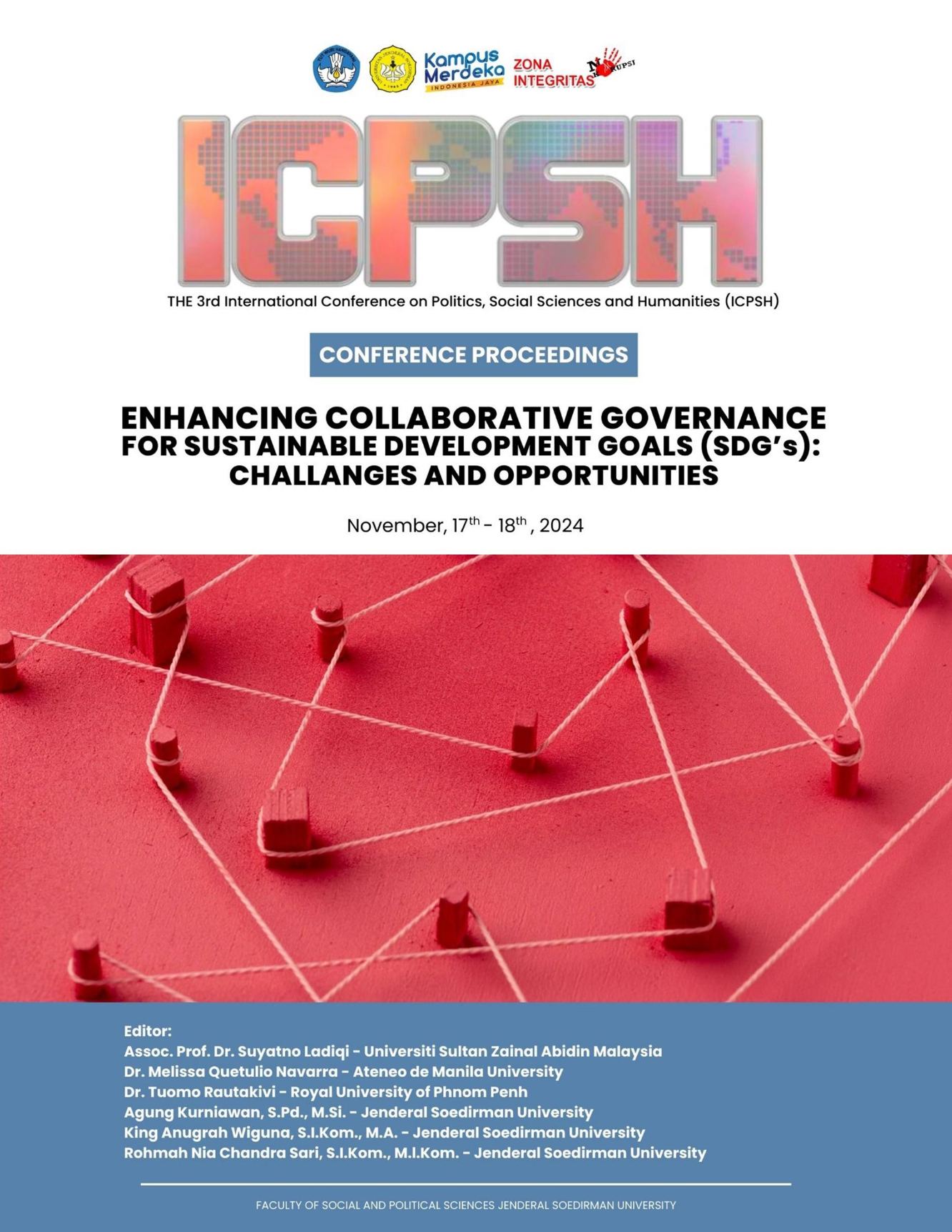Agricultural Transformation Based on Food Collectivism to Actualize Food Smart Cities in Indonesia
Abstract
Indonesia is experiencing a food crisis and an import emergency. Although Indonesia is considered an agricultural and megadiverse country, it is still not optimal in utilizing and managing the potential of natural and human resources to meet the availability, affordability, quality, sustainability, and adaptation of food to the community. In line with the Sustainable Development Goals (SDGs) on Goal 2 and on Goal 12. The author offers an idea to solve these problems by exploring the concept of food collectivism. This concept is actualized in the form of parameters or indicators as an effort to transform agriculture. In addition, the author also conceptualizes food collectivism to realize food-smart cities, which is closely related to the transformation of modern agriculture. The research method used is descriptive, and research materials were analyzed through literature studies. The results show that food collectivism embodies food sovereignty, food independence, food security, and food sovereignty, interconnected by prioritizing the right to food and local food-based community welfare. Food collectivism can be a guideline in realizing food-smart cities where cities can be said to have been able to balance food production with the food needs of their residents.



